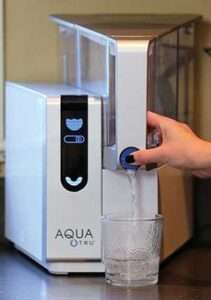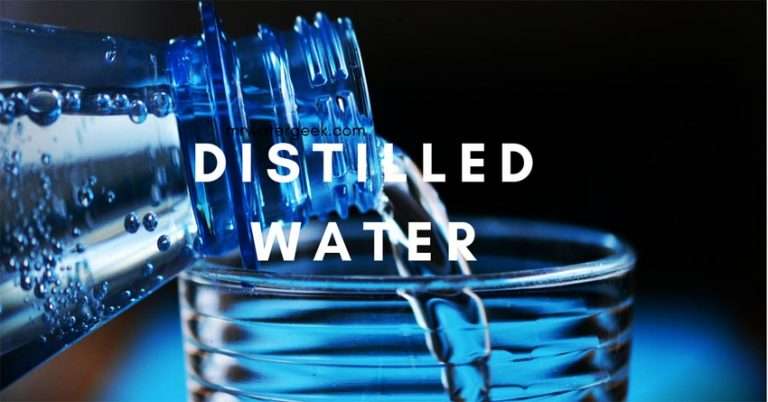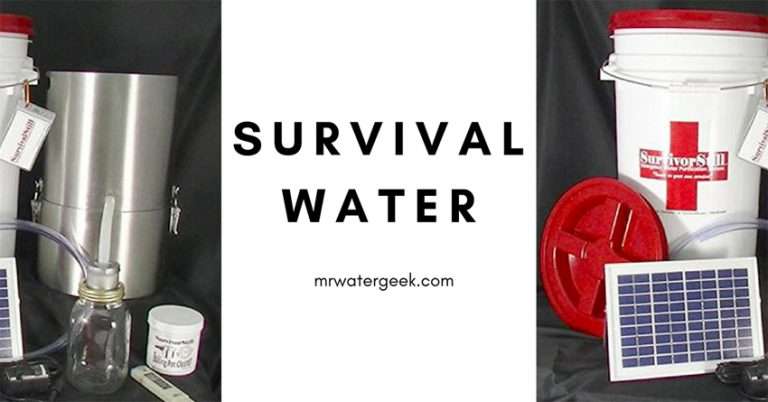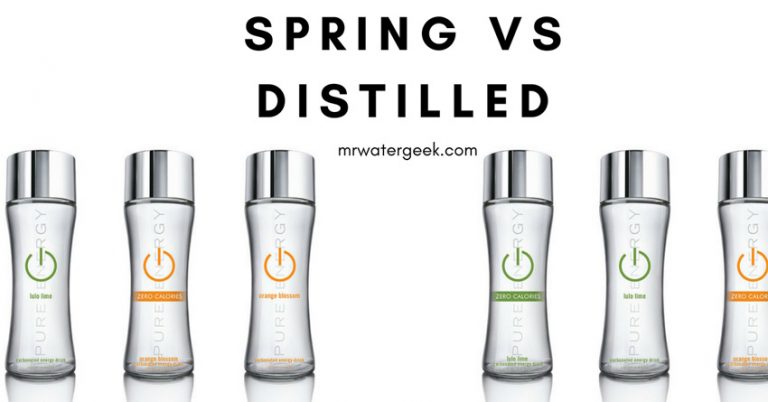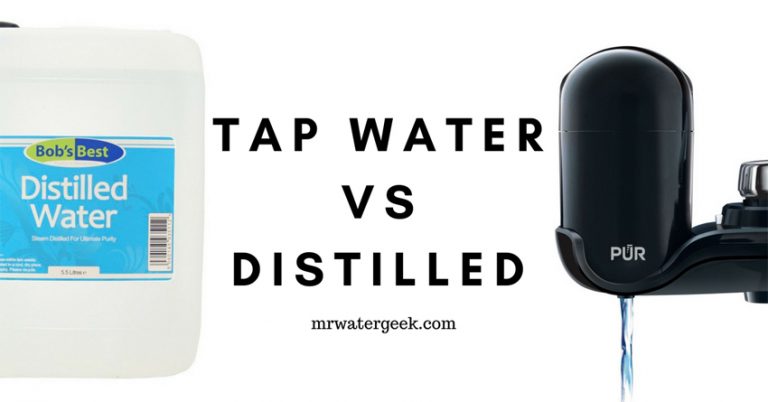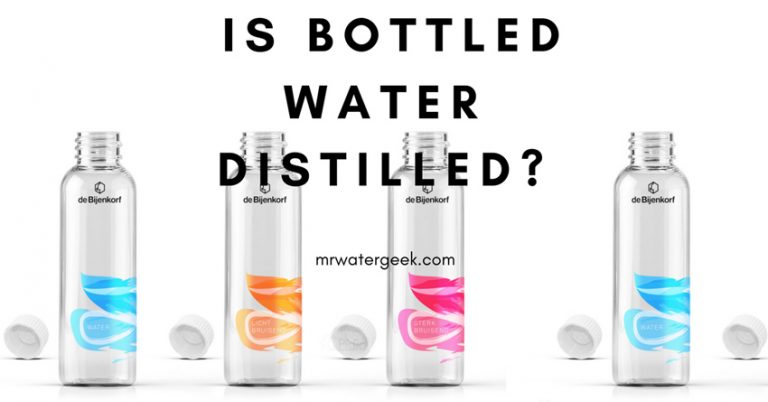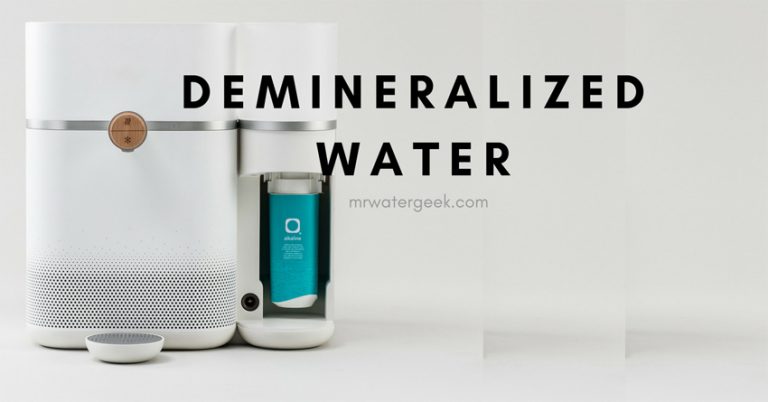The Biggest PROBLEM With Purified Water That No One Talks About
The Biggest Problem With Purified Water
![]() The main controversy surrounding purified water involves environmental concerns related to the production process, including energy usage and waste generation.
The main controversy surrounding purified water involves environmental concerns related to the production process, including energy usage and waste generation.
![]()
Purified water appears to be one of the fastest growing types of bottled water.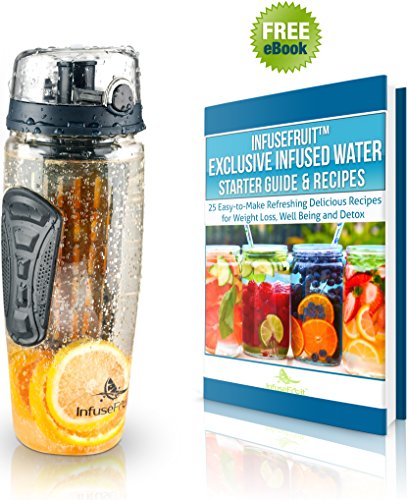
Why this surge in demand and supply? Because it is purer than other water types.
It makes sense when you think about it.
Why does anyone buy water? Because they want to ensure they are drinking the cleanest form of water possible.
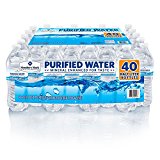 At the very least, people buy water to ensure it’s of a higher quality than tap water.
At the very least, people buy water to ensure it’s of a higher quality than tap water.
And this is very wise when you read some of the worrying reports regarding tap water.
It might not be as safe to drink and you might think. So it may be prudent to get a way to purify your water.
What is Purified Water?
Purified water originates from any source, but is heavily filtered to remove things like contaminants and chemicals.
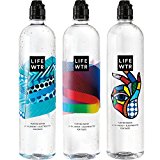 There are many different ways to produce “purified water” including reverse osmosis, distillation and carbon filtration.
There are many different ways to produce “purified water” including reverse osmosis, distillation and carbon filtration.
However, to be legally classed as “purified” means that its impurities must be completely removed or down to extremely low levels.
What Is Spring Water?
In very simple terms, spring water is water from a natural spring. It is not the same as rainwater or river water.
Purified vs Spring Water
Purified |
Spring Water |
| Purified drinking water may originate from any source including directly from the tap.
It does not matter since the purification process is designed to virtually remove all types of impurities. |
Spring water comes from completely natural sources.
However, it can also go through light filtration before being bottled. |
Purified water vs spring water, which is best?
If you want the highest level of water purity then buy purified drinking water.
Can You Drink Purified Water?
 The answer is yes you can and you should. This is because the word “purified” in this case simply means it has been filtered in some way.
The answer is yes you can and you should. This is because the word “purified” in this case simply means it has been filtered in some way.
This means you don’t have to buy specifically labeled “purified” in order to enjoy its benefits.
Simply installing a water filter in your house will give you water that is purified.
Other options include water filter pitchers, reverse osmosis machines and dedicated counter top pitchers like the Berkey.
(Read: 7 Reasons Why The Berkey Water Filter is WEIRD But EFFECTIVE)
Although this type of water is generally safe for drinking, it is not always the best choice.
For instance, if the source water is full of harmful chemicals and not properly filtered.
AquaTru Water Filter | Berkey Water Filter |
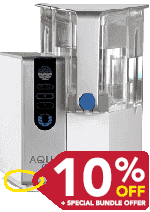 | 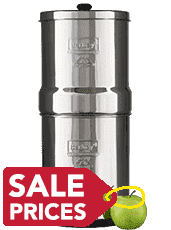 |
| - Arsenic: Approx 90% (unspecified). - Fluoride by 91.8% (WITHOUT extra filters). - Lead 97.5% - Benzene 99.9% - Chlorine 96.6% - Cysts 99.99% | - Arsenic by 99.9% (special filters required). - Fluoride by 99.9% (special filters required). - Lead 97.5% - Benzene 99.8% |
| Available in 1-size only. | Available in various sizes. |
| Plastic materials. | Metal & plastic materials. |
| Number of filters: 3 | Number of filters: 2 - 4 |
| Filter methods: Mechanical, Reverse Osmosis & Activated Carbon filters. | Filter methods: Black microporous-filters & white fluoride Filters |
| 4-stage filter process. | 2-stage filter process. |
| Holds a maximum water capacity of 3-quarts. | 2.25 Gallons |
| 45.7 x 45.7 x 38.1 cm | 19" High x 8.5" Diameter |
| System: 1 year limited warranty. | Filters: 2 years; System: 1 year. |
| Full Performance Data Sheet (AquaTru). | Berkey Contaminants List NSF/ANSI test results |
| SPECIAL OFFER? Yes, use code MRWATERGEEK  | SPECIAL OFFER? Yes, Big Berkey bundle sale |
 | |
Scientific References
Arik Azoulay, Philippe Garzon, Mark J Eisenberg, Comparison of the Mineral Content of Tap Water and Bottled Waters, J Gen Intern Med. 2001 March; 16(3): 168-175.
Cohen, Stan (Revised 1981 edition), Springs of the Virginias: A Pictorial History,
Springs of Missouri, Vineyard and Feder, Missouri Department of Natural Resources, Division of Geology and Land Survey in cooperation with U.S. Geological Survey and Missouri Department of Conservation, 1982
Assessment of spring water quality and quantity, and health implications in Tongaren division, Nzoia River catchment, Kenya Authors G. M. Simiyu, J. Ngetich, T. A. Esipila First published: 3 February 2009.

